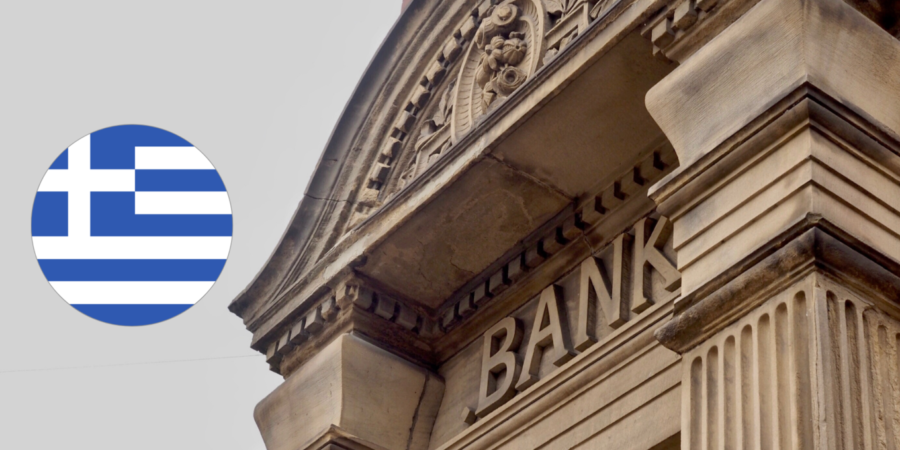Opening a Bank Account in Greece – 2022
Opening a Bank Account in Greece
Greece is an amazing country. It combines fantastic food with a remarkably rich history and unique culture. The landscape is a mix of Rocky Mountains, pristine beaches, and isolated paradise islands. It’s no wonder it’s one of the top vacation destinations in the world. Or that so many people want to move there!
If you are considering moving to Greece as an expat, there are certainly options to do that. Once you do, you will probably need to have a bank account.
You might remember that Greece did have a financial crisis several years ago, and things were quite shaky with their economy for a while. However, things have improved a lot. So, while you will probably still have to answer more questions and jump through more hoops when opening a bank account in Greece, the financial system is mostly stable.
Here’s everything else you need to know about opening a bank account in Greece as an expat.
How to Open a Bank Account in Greece
Opening a bank account in Greece is much like what you would expect in any other modern country. You will need to provide some documentation to prove who you are, where you live and that you have a local tax number. You will usually have to go into a bank branch in person (although there might be some online options, as we will discuss in a moment), and you will have to choose the bank account package you want.
Greek banks will verify your identity, and then if everything checks out, they will open your account for you. You will get your bank cards and cheques (if your account type includes them), and then you will be able to go on your way. If you’ve ever opened a bank account anywhere else, then you can expect a very similar process when opening a bank account in Greece.
How to Open a Bank Account in Greece as An Expat?
Yes. Expats living in Greece are allowed to open a bank account – however you do need a Greek tax number for most kinds of accounts. So, you will have to get one before you start your application.
Once you have all the documents you need to open your account, you will usually need to make an appointment to go to the bank to complete the process.
You will usually be required to make a deposit into your account, and you will be given any cards and cheque books that apply to your account when you visit your branch.
There are many different kinds of bank accounts in Greece, all with different fees and benefits. So, make sure you ask questions if you have any, and review all the banking products that are of interest carefully. You could save a lot on transactions by choosing the right type of bank account!
What Documents Do I Need to Open a Bank Account in Greece?
As you probably expect, when you open a bank account in Greece (no matter where you’re from) you will need to do a lot of paperwork. Much like any other bank, in any other country.
When you are opening a bank account in Greece as a foreigner, you will need to provide:
- Your valid passport
- Proof of address, in the form of any recent official letter, your lease or a utility bill
- Your Greek tax numbers
- Tax returns from your home country if applicable
- Details of your previous bank accounts or other bank accounts you have in your home country
Greek banks often also ask for proof of your creditworthiness, even if you are not applying for an account with credit facilities, so be prepared to provide those on request.
You will also need to complete the application paperwork for the type of account you want to open, although this might also be completed by the person helping you to open the account.
Can I Open a Bank Account Remotely in Greece?
Unfortunately, not. While some countries have the option to open an account before you arrive or online, in Greece, you will have to go to a branch in person to complete the process and provide a sample signature.
Most of the process can be done ahead of your appointment though, so the actual time in the bank to finish opening a bank account in Greece could be relatively short.
Can Foreigners Open a Bank Account?
Yes. Foreigners who are living in Greece can open a bank account there – provided they have a Greek tax number and can provide all the required paperwork.
List of Banks in Greece
Greece has a very robust banking system, with many international banks and European banking groups having a presence in the country. So, if you already have an account with HSBC, Citibank, Bank of America, Deutsche bank, or any of the other international banks, you might be able to keep using it. Most international banks are only present in large cities though, so be sure to check before you decide where you will live and bank!
However, Greece also has a lot of local banks. Some of the biggest ones are:
- Piraeus Bank – has nearly 600 branches in Greece and throughout Southern Europe, so if you plan to travel, a very good choice!
- Alpha Bank – over 480 branches in Greece and over 200 in the rest of Europe, so this is another good option
- National Bank of Greece – over 870 branches in Greece, and a presence in the rest of Europe
- Eurobank – the third largest banking group in Greece, and also has a European presence
There are many other smaller banks to choose from too, including:
- Aegean Baltic Bank
- Attica Bank
- Cooperative Bank of Central Macedonia
- Cooperative Bank of Chania
- Cooperative Bank of Drama
- Cooperative Bank of Epirus
- Cooperative Bank of Karditsa
- Cooperative Bank of Thessaly
- Optima bank
- Pancretan Cooperative Bank
Many of these banks only have a local presence though, so if your Greek plans include travelling in the country and to other parts of Europe, they might not be the best choice.
It’s also a good idea to choose one of the bigger banks, because most of them have staff who speak English, and they offer the widest range of products. Which means you can choose from a wider range of banking products, which might also include credit cards and business accounts.
Which Banking Services Are Provided in Greece?
When you are opening a bank account in Greece, you can expect to find all the services you might expect to see in your home country.
Accounts range from very basic and simple savings accounts to chequing accounts and credit cards. Banks also offer loans, although it may be harder to qualify for those kinds of service as a foreigner in Greece, and it may take some time to build up your local credit history before you can apply.
Transferring Money
Often, the simplest way to transfer large sums of money into a Greek bank account is by wire transfer. This is also often safer, because the banks involved handle the process and there are no third parties involved.
PayPal works in Greece, but has very limited functionality, including cross border transfers, so that’s not really an option.
You can also send money to Greece using services like MoneyGram and Western Union, and other services like World Remit and others also allow you to send money to Greece.
It’s important to note that many money transfer services have daily, weekly, and monthly limits, so you might not be able to send large sums this way. Fees can also be fairly high, depending on the service you use.
You can also use these methods to send money inside Greece, but there are also some other options within the country. Some Greek banks allow you to make “e transfers” to other Greek bank accounts, so if that’s something you want to be able to do, be sure to check if that option is available when opening a bank account in Greece!
If you have a Visa backed card, you can also use their global Visa to Visa service to send money between Greek bank accounts.
Fees and Taxes
Like banks everywhere, Greek banks charge fees for most transactions (although you might be able to reduce this by choosing a bank account type that includes certain unlimited transactions.)
In general, you can expect to pay:
- ATM fees, which are set by the bank that operates the machine – you will pay more if you withdraw from an ATM that is not operated by your bank, so limit those kinds of withdrawals!
- Bank fees for in branch transactions, transfers, cheques, and other services
- International transfer and forex fees when sending or receiving money internationally
Residents of Greece are also subject to various taxes, which you can read about in our in depth article on the Greek tax system.
FAQ
How safe is the Greek banking system?
The large Greek banks are generally a safe option to keep your money, however, it is worth noting that Greece has a somewhat volatile economy, so exchange rates might fluctuate a lot, and could affect the value of your money. The government can and has previously levied surprise “taxes” on high value bank accounts – notably during the financial crisis. So, it’s a good idea to keep your foreign investments where they are and move your living money to Greece!
What are Greek banking hours?
Perhaps the most shocking thing you will discover when opening a bank account in Greece is that the banking hours really are like the old cliché! Most Greek banks are only open from 8am to 2pm, Monday to Friday!
Will I be able to get service in English?
Most of the bigger banks have staff who speak English and websites with English versions, but you might want to avoid smaller local banks, where you might find English service harder to find.
How long does it take to open a Greek bank account?
That really depends how long it takes you to gather all the required documents and get a Greek tax number. The process itself is fairly quick. In most cases, you can complete most of the application online, submit it and then just make an appointment to finalize the process.
Where do a get a Greek tax number?
A Greek tax number, also called an AFM (Arithmo Forologiko Mitro) is free to obtain. All you need to do is take the required documents to your local Greek tax office and complete the application.
Can I use online banking in Greece?
Yes. All of the big Greek banks have online banking systems, so you can login and take care of all the necessary transactions whenever you need to.
Will I be able to get credit?
It is very difficult (although not impossible) for foreigners to get credit in Greece. You will need to provide a lot of information about your international and local credit score in order to apply, and you can expect a long process.
What kind of bank account should I get?
That really depends on what you want to do with it. If you just want a day-to-day transaction account, you can probably get whichever savings or chequing account has the lowest fees. If you want to invest or run a business, you will need to speak to the bank’s advisors to find out what your options are.
Contact Us
Smart Citizenship has been helping expats move to Greece and other countries for a long time. We’re familiar with the immigration process, as well as most aspects of life in Greece, and can give you the best, most up to date and professional advice.
So, if you are considering moving to Greece, or just looking into your options, we’d love to talk to you. Contact our team to talk about your immigration plans and find out more about how we can help you to put down roots in Greece or somewhere else.




